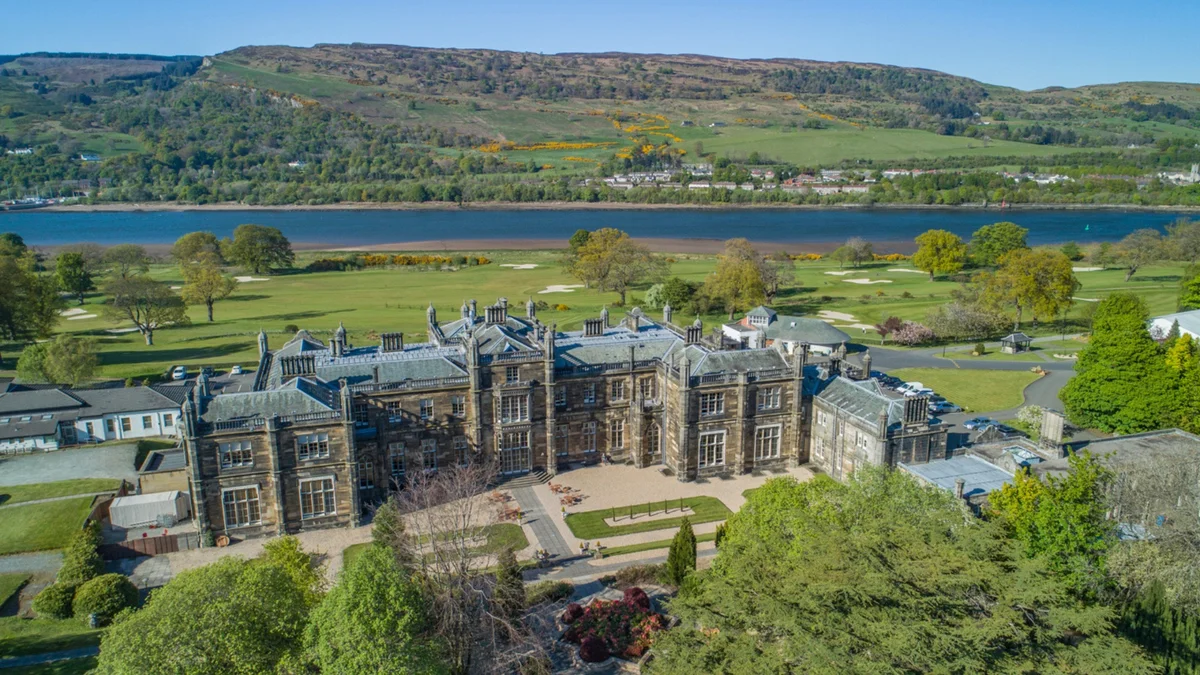Copyright The Hollywood Reporter

With medieval churches, brutalist apartment blocks, sweeping mountains and Tarantino-esque dive bars, the Caucasus nation of Georgia has played a variety of starring roles in recent years. In F9, the ninth Fast & Furious movie, the capital Tbilisi served as the backdrop for a high-octane car chase, with American muscle cars roaring past the grand opera house, parliament and Freedom Square — a potent symbol of Georgia’s break from Soviet rule — as a helicopter thundered overhead. The Apple TV series Drops of God tapped into the country’s moody vineyards and soaring peaks for its cross-continental tale of wine and inheritance. And the Bollywood film Gunjan Saxena: The Kargil Girl used Kazbegi, a high‑altitude area in northeastern Georgia, to evoke the rugged terrain of India’s Kargil region. “Georgia wants to become the Hollywood of the Caucasus,” says Tatia Bidzinashvili, director of Film in Georgia, a government-backed agency created to attract international and domestic productions. “Some people think Georgia is like Zimbabwe, but then they come here and realize we are a modern and vibrant European country.” Located between Eastern Europe and Western Asia, Georgia — a proud and visually striking country of less than 4 million people — has been drawing productions from Los Angeles to Berlin. It builds on a rich filmmaking culture that flourished during the Soviet Union when the state flagship studio, Georgian Film Studio (originally Kartuli Pilmi, founded in 1921), produced dozens of films a year at its peak. On the surface, Georgia’s pitch is compelling: robust financial incentives, including a cash rebate of up to 25 percent on qualified costs; an established ecosystem of experienced crews; a one-stop service that handles location scouting and permits; and an eclectic urban and natural environment. “In Georgia, you can find snowy mountains, sunny beaches or forests within a three- or four-hour drive,” says Irakli Makatsaria, a Tbilisi-based Georgian television presenter who starred in Ukraine’s version of The Bachelor and owns Maq Entertainment, a leading Georgian film production company. Yet for all its advantages, Georgia’s cinematic ambition is being challenged by political instability under the government of Irakli Kobakhidze, who assumed office in February 2024 and has been accused by human rights advocates of steering the country toward authoritarianism. Under his stewardship, the government has stymied dissent, and opposition parties and independent media have faced intensifying pressure. Political analysts also warn that Georgia has aligned with an increasingly bellicose Russia. Reporters Without Borders ranks Georgia 114 out of 180 countries in its 2025 World Press Freedom Index. “Georgia is a film-friendly country, but our friends are also being arrested — that is the reality of what is happening here,” says Anna Khazaradze, co-founder of 1991 Productions, a film production company based in Tbilisi and London whose upcoming projects include Tear Gas, a coming-of-age story about a 16-year-old girl and her family swept up by anti-government protests. Bidzinashvili of Film in Georgia counters that a can-do, centralized state eager to attract productions is an advantage for filmmaking. In 2019, when F9 wanted to film its famous car chase scene in the heart of Tbilisi, she says the city shut down Rustaveli Avenue — akin to Paris shutting down the Champs-Élysées — for nearly a week, while more than a dozen adjoining streets were off-limits to traffic. “If a production needs 20,000 extras, we can help arrange that, along with permits that would take weeks or months elsewhere,” she says. Makatsaria of Maq Entertainment says that when he scouted locations for Special Ops — a 2020 Indian television espionage series about an intelligence officer deploying a covert team of agents to track down a terrorist mastermind — Georgia allowed the production to film several dozen extras near the high-security immigration area of Tbilisi’s busy international airport. Despite daily protests rippling past Freedom Square in late 2024, the American production of Hotel Tehran — a thriller starring Liam Neeson about disgraced ex-CIA operatives — continued filming in central Tbilisi, with local authorities helping to secure the set, according to Georgian officials. “Anyone who knows Georgia and our history knows we have had protests for a hundred years, but life goes on,” Bidzinashvili says. Some foreign productions have also been jittery about Georgia’s proximity to Russia, which invaded Ukraine in 2022 — and in 2008 entered Georgia itself. Today, Russia maintains military control over the breakaway regions of Abkhazia and South Ossetia, which Moscow recognized as independent after the 2008 war. Makatsaria notes that despite tensions, Special Ops filmed near the border with Abkhazia, using drones and a helicopter to capture a sweeping establishing shot over the 890-foot Enguri Dam — among the world’s tallest arch dams. Georgia’s complex history with Russia still looms large in its collective imagination and continues to inspire high-profile projects. Expected to premiere next year is the film Young Stalin, a British-Georgian co-production that was partly filmed in Georgia. The country is an apt backdrop for a film tracing the early years of Joseph Stalin, Georgia’s native son, who was born in Gori, in eastern Georgia, and whose brutal rule cast a dark shadow over the 20th century. Despite its social conservatism, Georgia has hosted foreign productions tackling polarizing social issues, even as LGBTQ+ films face distribution hurdles within the country under a 2024 law widely seen as targeting LGBTQ+ expression and which Human Rights Watch calls “discriminatory.” Batumi, on the Black Sea near Turkey, served as the backdrop for 2024’s Crossing, an emotional drama directed by critically acclaimed Swedish filmmaker Levan Akin about a retired schoolteacher searching for her transgender niece. Khazaradze, whose company co-produced the film, says that while shooting in Georgia proceeded uninterrupted and the film was feted internationally, it has struggled to find distributors in Georgia, which she attributed to anti-LGBT sentiment. Georgia has also provided an alternative location for films that are difficult to shoot on location. In Girls of the Sun, which premiered in competition at Cannes in 2018, Georgia stood in for Iraqi Kurdistan: a decommissioned Soviet air base in Vaziani became a town buffeted by war where a Kurdish female battalion fights to reclaim its home from ISIS. To lend realism, the government supplied military vehicles for the battle scenes. Today, private Georgian companies such as 20 Steps Production, Industria Films and Maq Entertainment offer full pre- and post-production services such as equipment rental, props and casting — though producers say finding large soundstages can prove challenging. Pampered Hollywood executives and A-list directors will also likely be seduced by Georgia’s famously warm hospitality culture — including historic villas converted into high-end lodgings. The local cuisine, with dishes like khinkali — Georgian dumplings — and cheese-filled bread called khachapuri, also remains one of the world’s most underrated kitchens, though perhaps not for waist- conscious Hollywood stars. “They say in Georgia, guests are a gift from God,” says Makatsaria, the producer and TV presenter. “That is why the red carpet comes with endless wine and at least three new best friends insisting you stay for one more toast.”



